INTERVIEW WITH LEONARDO BOFF
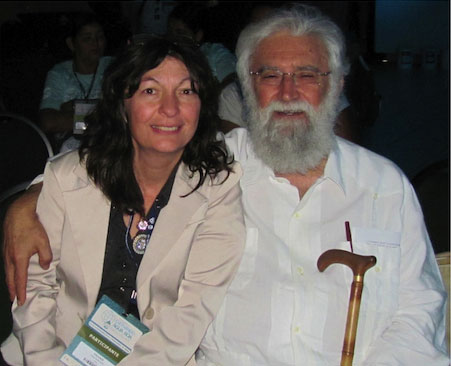
He is a theologian and writer, known for his active support for the rights
of the poor
and excluded through the Liberation Theology in the 70’s and 80’s in Brazil.
He received in 2001 the Right Livelihood Award, also referred to as the “Alternative Nobel Prize”.
Professor Emeritus of Ethics, Philosophy of Religion and Ecology at
the Rio do Janeiro State University.
THE ECO-THEOLOGY OF LIBERATION
Theology and Eco-theology of Liberation
Liberation theology was born in Brazil in the late 70s, with the intention to listen tothe cry of the poors, the Indians, the Blacks, the women and all those who live inand against oppression. Against oppression, there is only the liberation !
As Christians we ask from when Christianity ceases to be a religion of accomodation.
Is it from its symbolic capital, its traditions and its fundamental roots ? This is a factor of mobilization, transformation, protest and liberation. We must not forget that we are the heirs of a political prisoner, tortured and crucified for religious reasons.
It was Jesus of Nazareth…
The theology of liberation is a strength, among others, which want to change this type of society, as the opposite of poverty is not wealth. The opposite of poverty is justice.
We need a global fight for justice and this central axis is the definition.
The theology of liberation is committed to the poor and against poverty, through justice.
But poors are not the only ones shouting : the trees, the animals, the earth, also call us.In the 80s we understood that listening to the poor is important and we must also hear the complaint of the Earth itself, devastated. It has to be free too, with his condemned sons and daughters. This is where a great Eco-Liberation theology emerged, which includes nature and a new paradigm. It means a new relationship with the earth, which will not only be based on the value or operation as in the current paradigm, but a synergistic relationship of cooperation, respecting the rhythms and the cycles of nature.
A production adapted to the capabilities that the earth provides is everything we need to live, and this forever, if we keep its reproductive capacity and if we maintain its integrity and vitality.
These themes from the theology of liberation have reached the Basic Ecclesial Communities (BEC). They are now being introduced in Ecological Communities Base, following the decision taken at the last meeting of great communities that were more than 600 bishops and 5,000 community representatives. From now on, ecclesial and ecological communities are responsible for defending mother earth, the “Pacha Mama”, exists to create a respectful relationship with it and try to educate others to this vision where land is not just an instrument of production.
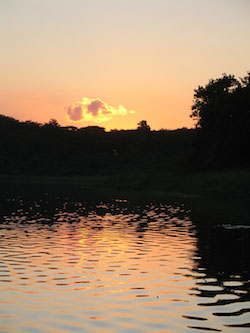
The importance of spirituality in contrast to the importance of religions
Spirituality is an anthropological dimension. The human being has within him the dimension of power, sexuality, intelligence … and other essential dimensions among which we find the spiritual dimension. The mind is not something that comes from outside. In human consciousness, that is the time when the human realizes that he is part of a greater whole.
And all this has a purpose, it makes sense, it is beautiful … It sends messages: we can admire the majestic waterfalls of Iguaçu, the depth of a life that is born, the size of a starry night sky … This spiritual dimension leads people to be compassionate, to be in solidarity with the weakest, to give life the love … All these values arise from the human dimension, which base is organic.
Since 1995, a team of neurologists and scientists have discovered that the human brain, with parental relationship, linguistic, logical and rational dimensions … we also find what they called “Point of God “. Whenever the human being is projected in a total vision of reality, it comes into contact with more sacred elements, there is a increased change in the vibration of the neurons.
These are scientists, not theologians, who called this place of the brain “Point of God.”
This means that the human being has an internal organ that can capture the universe in a mysterious presence, which has a meaning, value, and a thousand names to invoke : Tao, Shiva, Allah, God … thousands of names have been assigned by the human being.
This has nothing to do with religions which are institutions with their dogmas and doctrines.
All true religion is born from a deep spirituality lived by a prophet, a founder. It then organizes socially and religion appears. But religion must be constantly nourished by spirituality or she becomes an instance of oppression and fundamentalist rigidity.
It is therefore important that the spiritual is part of the human. This was very well expressed by a poet who, curiously, does not belong to the Christian space. This is the Cuban poet Roberto Retamaro. According to him, the human being has two appetites: the hunger for bread, which can be satisfied, and hunger for spirituality which is insatiable because it is the infinite capacity to know, to love, to give to others, to have compassion. These values have no limits. The human being often ignores that human dimension is infinite in him.
Ce sont les scientifiques, et non les théologiens, qui ont appelé cet endroit du cerveau le « Point de Dieu ». Ceci signifie que l’être humain possède un organe interne, qui peut capter dans l’univers une présence mystérieuse, qui a un sens, une valeur et mille noms pour l’invoquer : Tao, Shiva, Allah, Dieu… des milliers de noms lui ont été attribués par l’être humain.
Ceci n’a rien à voir avec les religions qui sont des institutions, avec leurs dogmes et leurs doctrines. Toute véritable religion nait d’une profonde spiritualité vécue par un prophète, d’un fondateur. Elle s’organise ensuite socialement et une religion apparaît. Mais la religion doit être perpétuellement alimentée par la spiritualité ou elle se transforme en une instance d’oppression et de rigidité fondamentaliste.
Il est donc important de dire que la dimension spirituelle fait partie de l’homme. Cela a été très bien formulé par un poète qui, curieusement, n’appartient pas à l’espace chrétien. Il s’agit du poète cubain Roberto Retamaro. Selon lui, l’être humain a deux faims : la faim de pain, qui peut être rassasiée, et la faim de spiritualité qui est insatiable car elle est l’infinie capacité de connaître, d’aimer, de se donner aux autres, d’avoir de la compassion. Ce sont des valeurs qui n’ont pas de limites. Souvent, l’être humain ignore cette dimension infinie qui existe en lui.
Without spirituality, there will be no peace and tranquility, as experienced St. Augustine. He has traveled all philosophical and scientific ways of his time without finding peace. When he got there, he said: “I loved you so late, beauty so ancient and so new. You were inside and I was looking outside, you were within and I was looking at outside. I feel your smell and your call to my ears, but when I’ve finally met you, you were the infinite peace. Since then, my heart rests”.
I think human beings are in search of a spiritual experience to find a deep peace that does not depend on economic values, or social status. It is a dimension which integrates all dimensions and opens human beings to infinity. The human being is essentially an infinite project, an unlimited desire. It relies only if it meets the object adapted to its infinite and that his desire is also an infinite reality.
The problem is that this hunger for spirituality is totally misguided by consumption, the power and handling of media religions, major shows, the Pope, churches, television, following the logic of the market while competing. They speak to the wallet of the man and not the soul of the human being. The market uses religion as it makes money with everything he can benefit, from sex until the Holy Trinity.
It is a referral mistake, a false direction, through which managers satisfy this hunger
by personal handling of entire populations. It gives them something that does not match reality, not only calms, but alienates. All these media religions never talk about the themes of justice, the nature of collective responsibility, nor poor, nor the ecological crisis. They speak only of peace and spirit, of prosperity but no solidarity with left-nots, or transformation, or being an agent of resistance and protest. There is no social dimension.

Ethics of Care
The ethic of care may be a fundamental pillar for a new trial civilization. According to me, a new world, a new earth, are based on the “viable”. It means that all natural beings can live and reproduce. Then, we base on the task of how to keep all beings interdependence, cooperative relationship. And respect, with regard to human beings. Care, in the sense of “taking care” (ndt), is the antidote to the ethic of conquest and aggression. Care heals the wounds of the past and avoid future injuries. With “sustainability” and care, we can create a set of relationships that enable a new way of living on planet Earth.
The program “Cultivando Agua Boa”
We are all in search of sustainable development that is economically viable, socially fair and environmentally correct. In practice, we do not find in any part of the world because the logic of capital accumulation and competition is by exploiting the nature and creating large differences between rich and poor. This is not sustainable development.
But there are small oases, which show that even within the capitalist system, it is possible to create a space where the ideal of sustainability is achieved. Indeed, here in the great hydroelectric plant Itaipu bi-national, we anticipate the implementation of what could be an ideal for humanity. In this project, “Cultivating Good Water”, it included all the people who make up the 29 municipalities around the reservoir lake. Then we developed a great process to mobilize and raise awareness to the population by creating groups of educators and educators in the environment.
(…)
I think this is done by a great economist Franco-Polish Ignace Bags, which is a research center in Paris about Brazil, who said: “Brazil has the possibility of creating a bio-civilization whose center is not physical capital or the market. The center is life, earth life, human life, life in all its diversity. If this happens, it will be the land of good hope. ” So I think the meaning of Cultivando Agua Boa is to be a small miniature, an example that another world is possible, inclusion and respect for nature means a good future for humanity.
One of the elements of the project is to take advantage of all the share capital of the region, values, traditions, festivals, religious events of the population … not just those from settlers of Italian, German, Polish, but also original, from Indian cultures.
We tried to show that religion can help to respect nature and that Christianity raises the ambition of the human being, regarded as the protector of this sacred heritage of the living world that was given to us.
The meetings are always opened and closed with ceremonies where there are large symbolic representations, songs ecumenically oriented, which I would say, represent the passage of physical capital and social capital to a
spiritual capital. Spiritual capital is for human and his hungry, not only bread, but for
transcendence, beauty, the meaning of the world that can offer the tranquility, peace and an overview. Because it is a requirement of the mind and it is usually the religions that offer alternatives to humans to acquire a broader vision, a powerful force for understanding and loving through all beings and make this world not chaotic, messy, a cosmos. The force that binds and connects all is the ultimate reality, it is “God.”
Political will and Spirituality
I think one of the most significant points of the “Agua Boa Cultivando” project is that it was opened by the right door. First, they conducted a major awareness campaign, which helped to activate the “significant reason”, as called by Michelle Mafessoli and other European thinkers call it ” the cordial reason.” That is what motivates people to take action because inside this cordial reason, sensitive, values and utopias are developed.
What moves people are dreams and passions. Starting there, people has to be sensitized by showing how important this is, how it can improve their lives and how
to build a better relationship with nature, with the production, adding to all this the feeling that everyone must participate, should be an actor. This “multinational”(Itaipu, a public company, ndt) does not do this as a company. It creates the conditions to foster citizen participation, they come in seminars, they deepen themes included in a framework of spirituality. When we talk about spirituality, it means non-material values: cooperation, compassion, openness to others, tolerance of individual and cultural differences, and simultaneously respect for nature.
They all understood this idea of a new cosmology in which the earth is not an ordinary object. This is not a trunk full of resources, it is a great organization that focuses on physical, chemical and ecological to sustain life forever.
The earth is a mother and we should respect and revere this mother. This idea was taken up by almost everyone and goes against the compulsive production and consumption which is very materialistic.
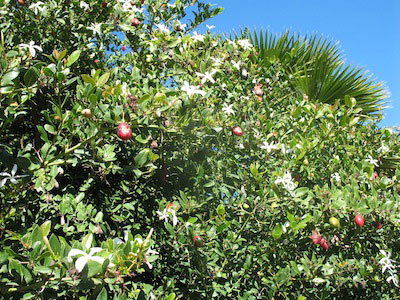
Shift the Paradigm
I think the main idea, particularly in industrialized countries, the famous G20, is :
“What else can we do ?”. Making corrections system so that it continues its course
as it has done so far.
But now there is a problem with the vast majority of those who animate this production system has not realized : we have reached the limits of the earth, overfished and devastated bio-diversity. The earth needs a year and a half to regenerate what we use in a year. This is not sustainable.
The major project of the UN is concerned about the Millennium Ecosystem Assessment and explains that the 24 elements that are essential for life, 15 are severely degraded, such as water, energy, seed fertility soil … and can no longer maintain the cycle of life.
This is the signal that the capitalist system has reached its limits, which are those of
the earth to renew itself. This means that either we change or the system takes us to a great humanitarian and ecological crisis. It is manifested by climate change, with extreme events such as major floods and severe droughts, hurricanes, proving that our planet is in chaos. Chaos is usually destructive. It affects biodiversity and millions of people become climate refugees. But the chaos generator can also generate a new order.Thus appears the theme of another paradigm. We must find a new way to produce
because we need to produce, but without trying to answer the question : How much
can I earn ?
Producing according to the cycles of nature, producing an adequately
and decently, not only for humans, because the earth was not created only for us but for the whole community of life such as forests, animals, all living organisms…
Producing according to the organization of life. This requires non-violent methods and we are working together with the energies, the limits and possibilities of the earth.
We must feel the need to take care, to distribute with justice and participation with
the natural and cultural assets for all humanity and the whole community of life.
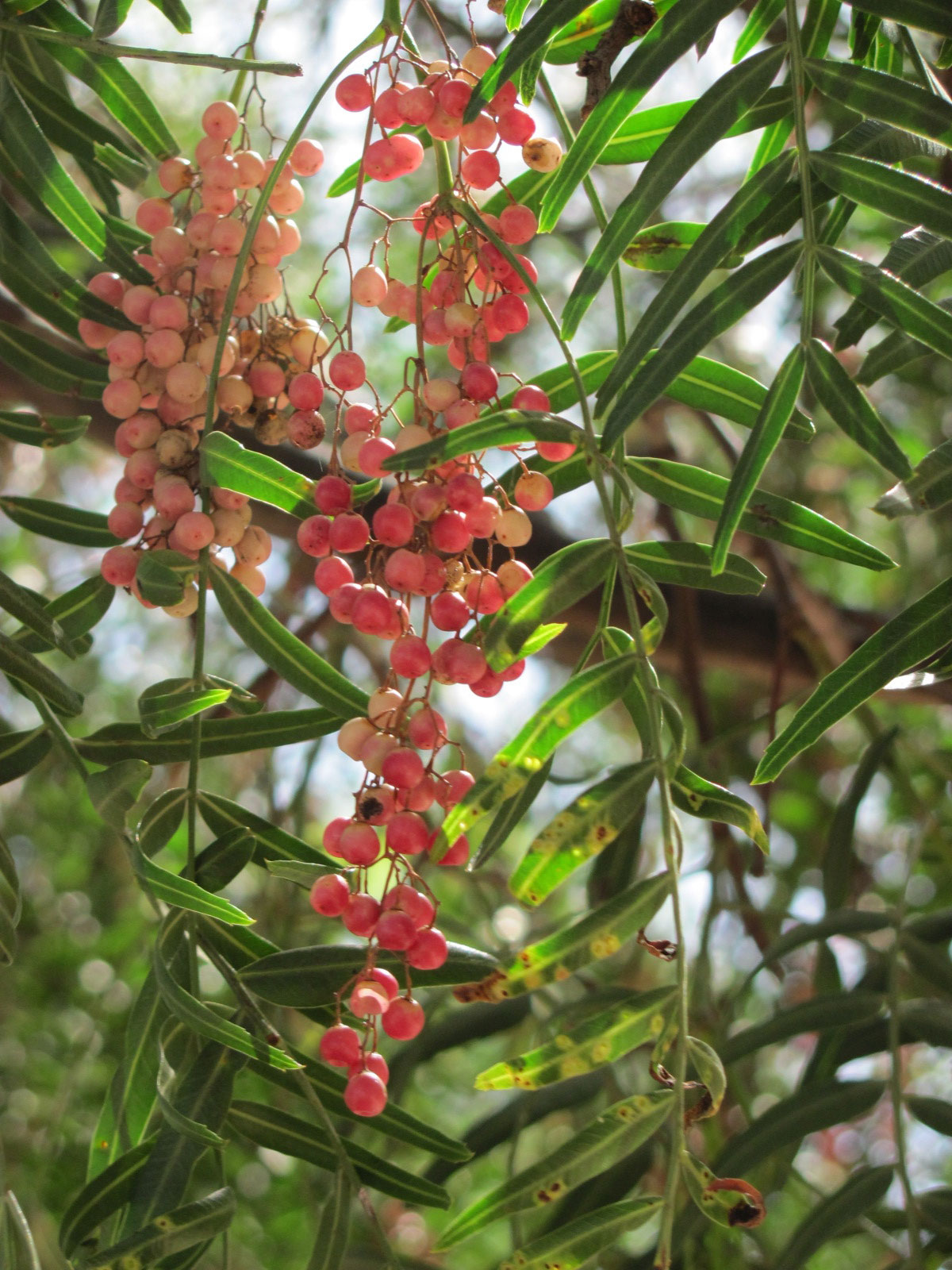
Water : universal symbol threatened by the private interests of market
We are witnessing today to a “corrida” world water privatization. But water is not any product. The water is a vital and irreplaceable natural. There is no life without water, whether human life or the life of all other living organisms. Life can not be transformed into a product subject to the market. We must commit at the global level, to prevent the water to become a product, to ensure access to all and retain the right to pure water and clean.
It should also be understood that the water can mean. Groups of heads of state and scientists met in Florence and Lisbon propose to carry out a global social pact around the fact that everyone needs water. But today, global social pact still does not exist.
The domination of a strong military power, the United States, shall apply to all humanity as its global interests. But water can be the factor that unites all nations and around which we can create global social pact to guarantee this right for all, without going through the market, leading public policy and community to maintain water resources sufficient for the continuation of life.
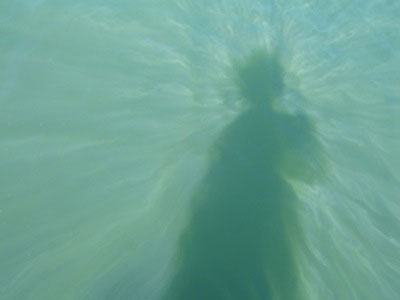
The importance of decision-making power of Women
I think the theme of the woman is one of the most important nowadays. First, women have made one of the great revolutions of the 20th century with the Eco-feminism.
They denounced the fact that all cultures today are still patriarchal. It is patriarchy
that created the type of state that we have, who created the bureaucracy, the military and war. One of the strongest criticisms of the current model of civilization come from women. They offer an alternative model of relationships based on the balance between man and woman, the collaboration between the sexes, while having as a central life.
FAO in its latest document states t than menhat we need to give more decision-making power to women if we want to ensure a sustainable future.
We are not talking about participation, because they are already involved in all areas, but decision-making power. They understand better than men what life, design, and take care of life mean. They have a coordinating function, a function policy direction. More women take power, more they use it in a sense of service and not domination. In many parts of the world, women become heads of state as they exercise power in a different way.
This is the signal for a new paradigm. It will implement more easily as women have
increasingly supremacy, leading roles. They have by nature a dimension of cooperation, dialogue, hospitality, attention. The man who is the most dominant in the competition, opens more paths of violence. This seems a crosscutting theme that requires political reform from the states in the perspective of the feminine values.

